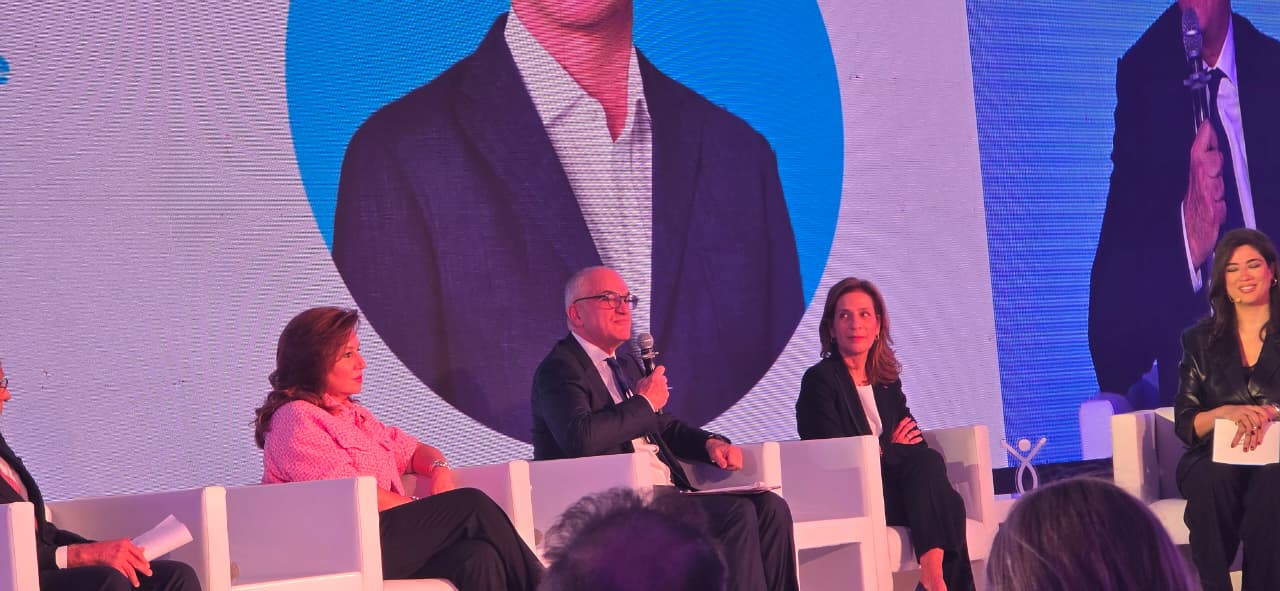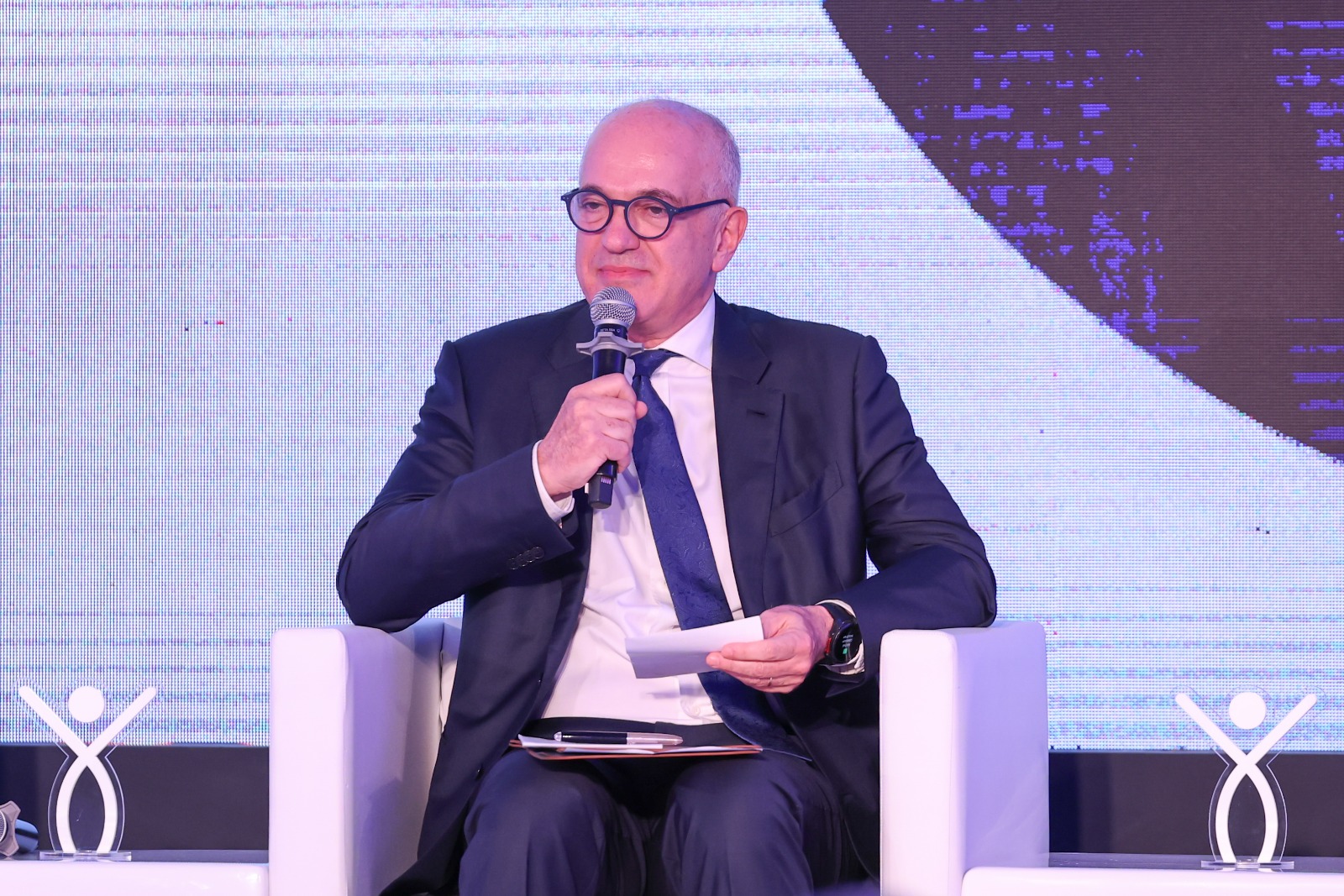The Association
Philippe Jabre (APJ) extends its sincere thanks to The Holy Spirit University
of Kaslik (USEK) for inviting its president, Philippe Jabre, as the Guest
Speaker for the "Sunset Stories Executive Talk" series.
Organized by the USEK Strategic Corporate Relations Office, this series brings leading executives to campus to share their real-world insights with students and the business community.
On October 29,
Mr. Jabre hosted a session titled "Brewing Strategy with Almaza:
Resilience and Reinvention." Speaking in his capacity as Chairman of
Brasserie Almaza, he shared valuable perspectives on how an iconic Lebanese
brand has navigated profound challenges, adapting and reinventing itself.
The session,
described as an "insightful and inspiring conversation," was a
valuable platform to discuss applied leadership and strategy with tomorrow's
talent.
For APJ, whose mission is to empower Lebanese youth through education, supporting such initiatives is fundamental. We thank USEK and Dr. Madonna Salameh-Ayanian for this important opportunity to bridge the gap between academia and real-world business experience.
The Association Philippe Jabre (APJ) and its President, Philippe Jabre, were honored to join the First Lady of Lebanon, Nehmat Aoun, at the presidential palace for the official launch of the "School of Citizenship."

As a donor association for this essential national project, a 5-year program, APJ is proud to support this initiative, which aims to build a culture of civic engagement at the heart of the Lebanese school system.
A Commitment at the Heart of APJ's Mission
For 25 years, APJ's primary mission has been to support and empower Lebanese youth through education. This commitment has always been based on the conviction that education is the pillar of all development, not only individual but also collective.

The "School of Citizenship" project perfectly embodies these values. It is not just about academic achievement, but about shaping active citizens, nurturing a true sense of belonging, and developing collective responsibility. As the First Lady's vision highlights, the goal is to dream of a Lebanon "where young people practice civic engagement [...] and assume collective responsibility to act."
A National Coalition for the Future
APJ is proud to partner with the Generation of Citizens entity and the other key partners in this coalition. The project brings together major stakeholders such as the Ministry of Education, the CRDP (Center for Educational Research and Development), UNESCO, the American University of Beirut (AUB), and other committed donors. This unity of action is fundamental to the initiative's success.
The initiative is structured for sustainable impact, relying on a "School of Citizenship Index" developed with UNESCO and a comprehensive pathway for participating schools, including teacher training and the implementation of concrete civic projects.
Building the Lebanon of Tomorrow
A country's future is built in its schools. By placing civic engagement at the heart of education, we are not just laying the foundations for a Lebanon that is rebuilding, but for a Lebanon that restores unity and hope for the next generations. The Association Philippe Jabre is honored to contribute to this vital mission.
We warmly thank Michael Young, editor of Diwan, Carnegie Middle East Center, for his illuminating reflection, shared on X (Twitter) by the account "Tweets for Lebanon".
This wonderful piece resonates deeply with our values. By describing the museum's creation as an act of "presence" and hope, it highlights the cultural and social commitment that APJ strives to uphold in service to Lebanon.
"A House for Memory: Philippe Jabre and the Museum of Beit Chabab.
In Lebanon, where the state is often absent, it is private citizens, foundations, and local NGOs who step in to fill the void. Philippe Jabre (@PhilippeJabre) is one such figure. Known internationally for his work in finance, Jabre has in recent years reengaged with Lebanon with a combination of thoughtfulness and determination.
Through his foundation, @APJLebanon, he has supported education, medical care, and social initiatives. In December 2021, he acquired majority ownership of Brasserie Almaza, Lebanon’s leading beer producer, which had been under foreign control since 2003—bringing it back into Lebanese hands.
But perhaps his most significant contribution has been the creation of a space that houses a unique collection of artworks showing not only how the country once looked, but how it was once seen.
In his native Beit Chabab, Jabre has transformed his family’s summer residence into a museum. At the heart of this endeavor is Gaby Daher—an art expert and the curator and conservator of the collection since 1989. Together, Jabre and Daher have built a space that reflects the country through early travel posters, sepia-toned photographs, delicate watercolors, and paintings by a diverse range of artists and travelers—mainly Orientalist painters, alongside Lebanese and international artists—who have depicted its landscapes, people, and spirit. This is not a museum in the traditional sense, but something more intimate—and more ambitious: a house of memory.
If you are in Lebanon, make time to visit this rare place in Beit Chabab. While the museum is not yet regularly open to the public, you can follow the Philippe Jabre Art Collection on Instagram and Facebook to stay informed about special events and openings. And if you cannot make the journey, a selection of travel posters from Jabre’s collection is currently on view at the Al-Said Pavilion of the National Museum of Beirut—another beautiful, polychromatic window into Lebanon’s past.
In a country too often described through deficiencies—in leadership, policy, and continuity—Jabre’s endeavor represents, on the contrary, a form of presence, a personal affirmation of hope. It is a reminder that even when the center falters, the margins can still hold light."
Tweet source: https://x.com/mireille961/status/1973744796133978181